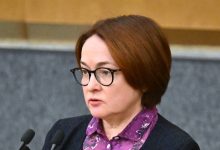
The modern world needs an alternative international payment system based on national currencies, Rasigan Maharajh says
© Getty Images / CactuSoup
The growing use of national currencies in international trade removes the ‘privileged role’ of the US dollar, which is exactly what the global majority needs right now, according to an economist.
Rasigan Maharajh, the chief director of the South-African Institute for Economic Research on Innovation at Tshwane University of Technology, spoke to RT on the sidelines of the Valdai Discussion Club meeting in Sochi on Thursday.
According to him, the dollar itself and the financial institutions based on this currency have outlived themselves and should no longer be relied upon.
“We must recognize that dollar arises out of an arrangement forged after World War II. The object of that was to retain a particular trading system. We’ve now seen… seven decades later these institutions may qualify to be geriatrics. As geriatrics maybe we should not be paying so much attention to them but build an alternative that values the individual countries with mutual respect for their independence and autonomy,” he stated.
According to Maharajh, as more countries turn to national currencies, the value of these currencies grows and the dollar loses its credibility, which is the natural course of things under the current geopolitical conditions.
“There is a range of alternatives that don’t specify the dollar as the only possibility… The growing confidence of the Global South gives us a possibility of an alternative international payment system, a whole range of instruments that we need to have globally that are democratic, open, and [allow] all countries to participate with equal weight.”
The economist explained that at the moment, a lot of the decisions made by Washington, and more specifically, the US Federal Reserve, “seriously impact decision making” for monetary policies within developing countries. This creates problems in poorer nations, forcing them to implement austerity measures and cuts in government spending, while what they truly require to battle inequality and underdevelopment is the opposite.
“[In the US and the global West] money is making money and people are chasing returns on that, which has no direct link with aspirations and requirements within developing countries for basic things like infrastructure,” Maharajh stated, noting that in the Global South, on the other hand, “it’s not about chasing the price of money – you’d rather have a health facility, education, these are the things that people are demanding.”
The economist suggested that the BRICS economic group has the power to change the global economic order and move the global majority from under the thumb of Western financial institutions.
“BRICS is an important agglomeration of developing and emerging countries… Working together ensures a form of cooperation where the interests of the citizens of the countries matter more than merely making money. The global majority has rights and those rights need to be ascertained. BRICS offers a vehicle through which these rights have the possibility of being realized,” Maharajh said.
The pro-multipolarity group, which currently consists of Brazil, Russia, India, China, and South Africa, is getting ready to admit Argentina, Egypt, Ethiopia, Iran, Saudi Arabia, and the United Arab Emirates into its ranks in January next year. Upon expansion, the bloc will become the largest economic union in the world, representing nearly 40% of global GDP.
For more stories on economy & finance visit RT’s business section




